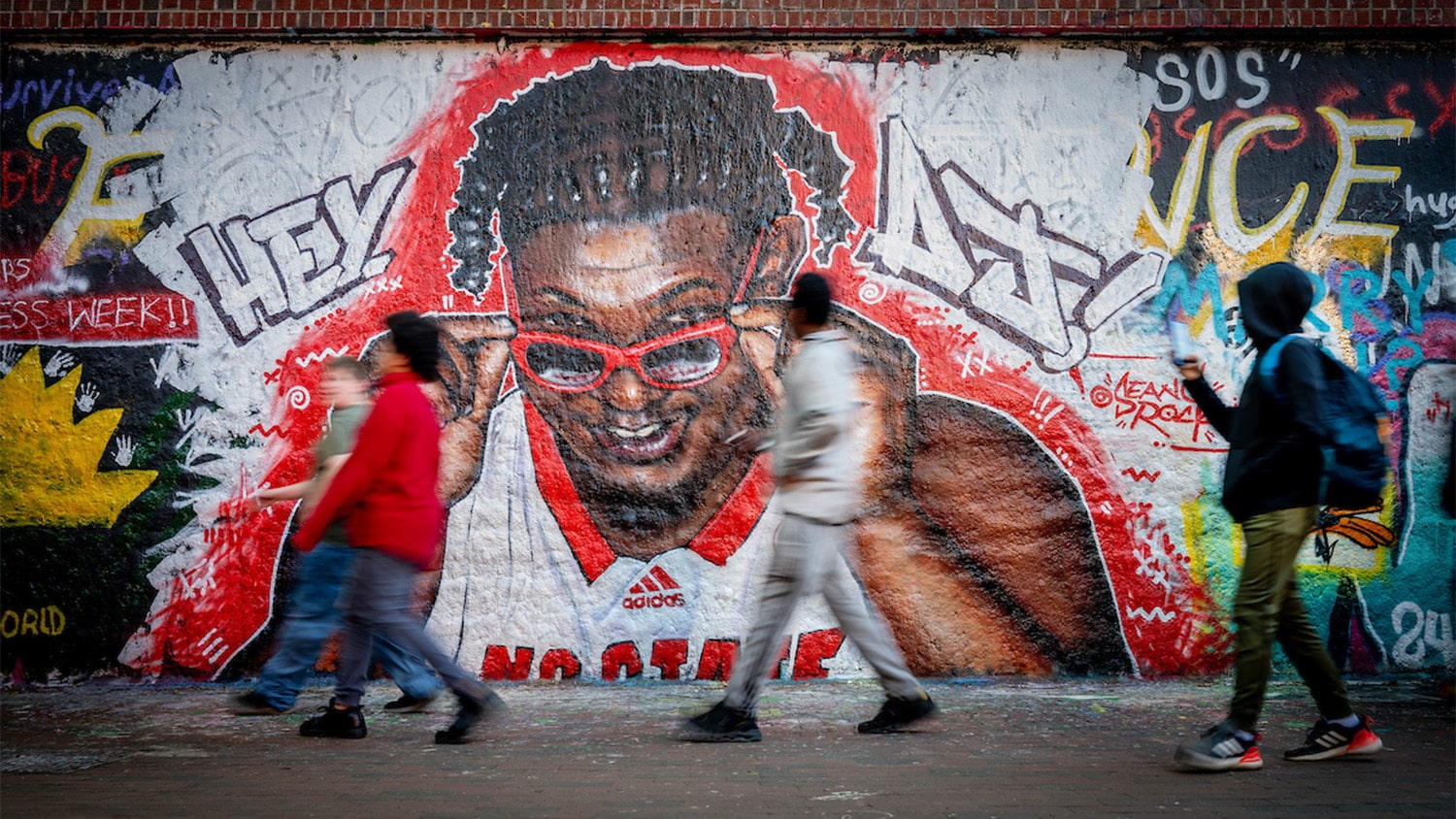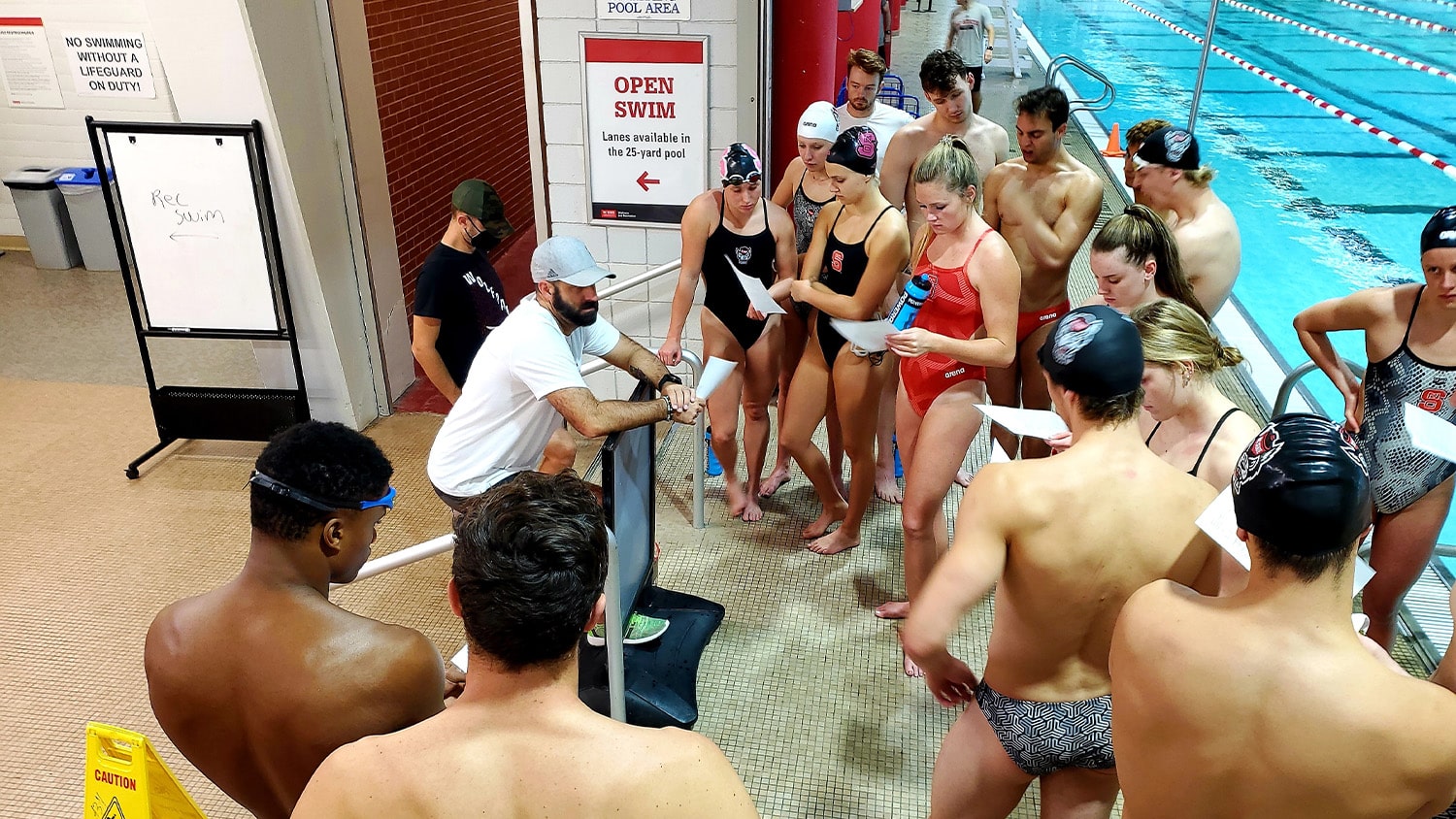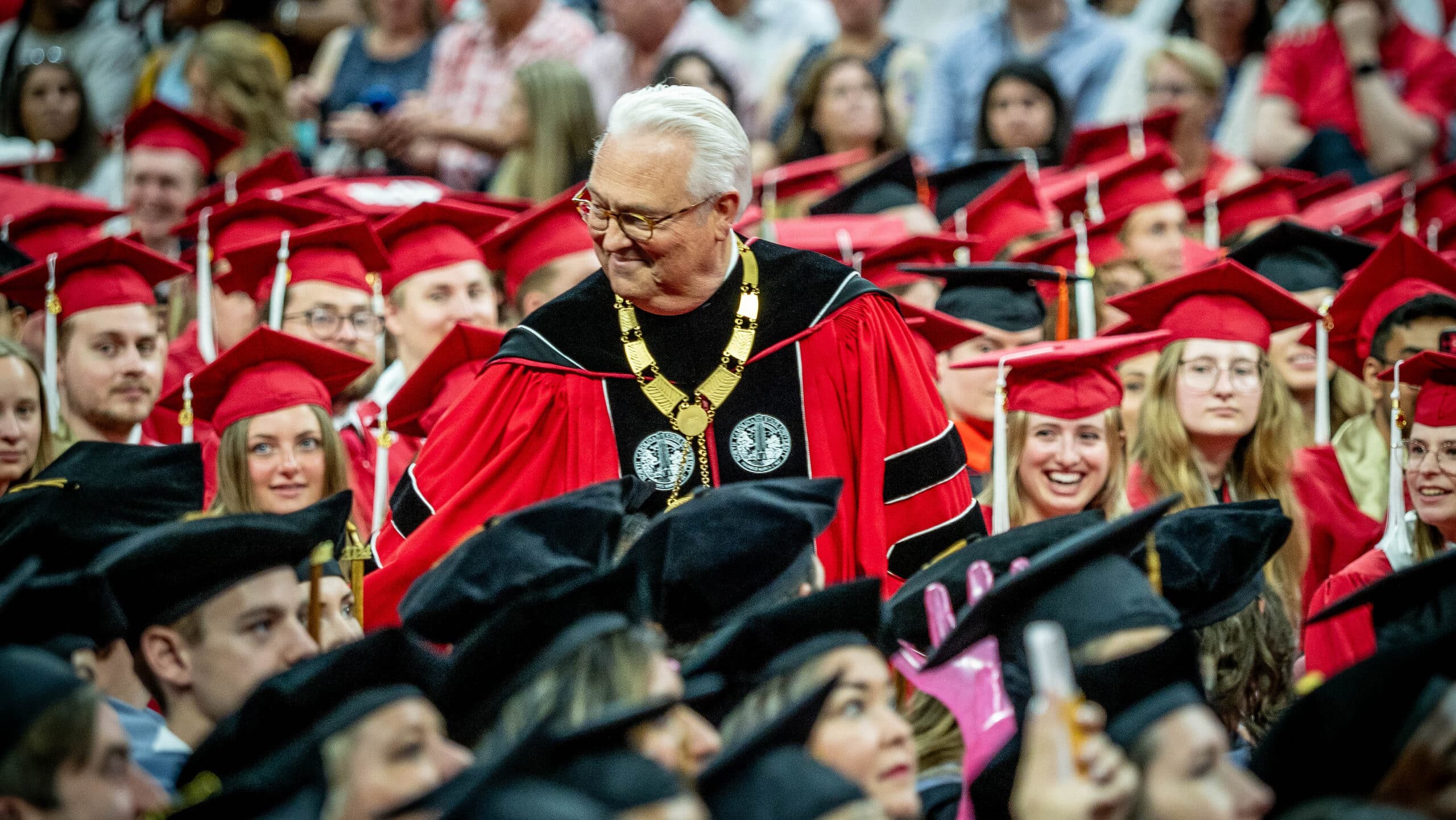The Legend of the Victory Barrel
Student leaders share a story that's been passed around for years. Discover the lore behind the Victory Barrel tradition.
On a farm in eastern North Carolina lived two brothers who were always competitive; each vying to be better than the other. The brothers competed with games they played, sports in which they participated, and everything in between, no matter how small. The brothers kept score of every competition with tally marks of their victories on an old wooden barrel, which was hidden in their family barn.
Over the years, the rivalry between the two brothers became stronger and stronger. The competition became so fierce that the boys decided they did not wish to and would not attend the same school. However, each brother wanted to attend a university in their great state of North Carolina.
One brother attended East Carolina University and the other North Carolina State University. For years the brothers endured an intense rivalry between each other. This included vying to see who received better marks in the classroom, who was a part of more extracurricular activities, and who would win competitions between the two universities.
Eventually, they both graduated from their respective universities. To no one’s surprise, both brothers became farmers, returning home to use the skills they learned to help the family farm. The brother from State was more experienced with growing the cattle, while the brother from ECU was more experienced in the business aspect of farming.
The brothers continued their competitions. When they moved out and started their own farms, they returned to the days of their youth and used the old wooden barrel to keep score as to who was more successful in his business endeavors. The brothers ended up living exactly 77 miles apart, which happened to be exactly where their family’s land was split evenly. Eventually, each brother became a successful, wealthy man.
As they prospered, each brother gave back to their community and to the universities which they loved. While they supported many aspects of their schools, both had a passion to support their universities’ athletics programs. Consequently, they never ceased to bring the competitive nature into the mix, each brother trying to out-support the other to give his team the best chance to be successful.
Finally, the brothers determined that establishing a concrete rivalry was in order. They wanted a competition that would be long-standing; one that would last beyond their years and could be kept going generation after generation. Therefore, the brothers decided to meet at the family barn where the wooden barrel (that they had used to keep a tally of all their competitions over the years) had remained hidden.
From that day on, it was decided that the winner of the annual ECU and NC State football game would decide ownership of the wooden barrel. It became a tradition every year that whoever won the bet won the wooden barrel, and the loser would scratch the score onto the barrel’s side. A new rivalry had been born. The rivalry would go on to have a positive impact in each of their school’s respective regions and on beautiful state of North Carolina. Eventually, the game would come to be known as the “Battle for the Barrel.”
Bitter rivals at every game, they each fought for the chance to take home the wooden barrel year after year. Eventually, the brothers got too old to roll the barrel from game to game. So they turned their infamous old barrel over to the student bodies and their Student Government Associations, who they knew would keep the competition of the old wooden barrel going strong. Today, students at both schools continue the brothers’ tradition, steeped in rivalry, and bring the barrel to today’s games. As always, the loser will scratch the score and the winner will take it home but only until the next game. The old barrel, now known as the pork barrel, has seen many miles between Raleigh and Greenville, and it will always be in the hands of the students as a reminder of our past and a symbol for our future.
- Categories:


